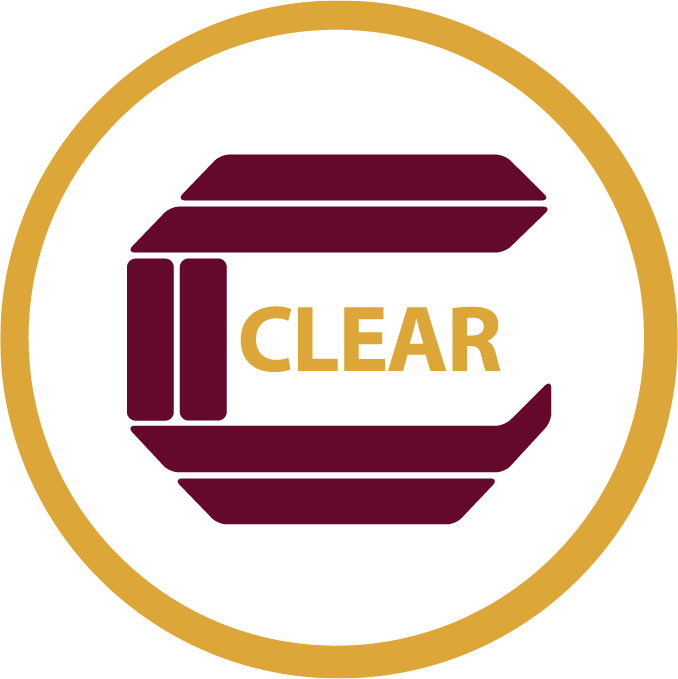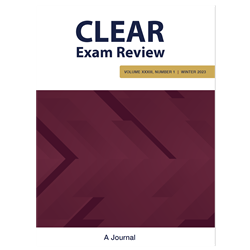CLEAR Exam Review Winter 2023
CLEAR Journal of Professional Regulation
CLEAR Exam Review Winter 2023, Volume 33, No. 1
In Abstracts and Updates, George Gray describes another National Council on Measurement in Education (NCME) digital learning module, this one focused on how credentialing testing programs handle unusual challenges. Dr. Gray also reviews a “a brief, very charming, and informative book about credentialing exams;” highlights two papers on ANSI National Accrediting Board accreditation; and offers articles on misconceptions during standard setting, the definition of validity, artificial intelligence (AI) and validity evidence, and the Wolkowitz decision consistency method.
Legal Beat describes a case that considered whether an education program was required to provide accommodations under the Americans with Disabilities Act (ADA) when using a third-party competence examination as a basis for matriculation through the program. The court ruled that the Plaintiff, a medical student, was not “otherwise qualified” to continue through the program and thus could not establish rights under the ADA. This case may have important implications for examination programs that are used within the education setting.
CLEAR Quick Polls over the past few months have collected snapshot data on several topics related to licensure and certification examinations. Carla Caro summarizes the results of a Quick Poll on cheating on licensure and certification exams during the pandemic, revealing that the quick implementation of online proctoring may have resulted in increased candidate misconduct and cheating. Responses are also presented from a Quick Poll addressing organizations’ consideration of bias when developing exam questions—with a strong majority indicating that they do consider bias—and sharing a range of approaches organizations use to monitor and prevent bias.
In our feature article, Donald Balasa considers the federal district court case of a student claiming that his constitutional rights were violated by his college’s room scan policy for remotely proctored exams. Balasa provides factual background and legal bases for the ruling and offers four practical and actionable suggestions that public test providers can implement to protect their programs from such legal challenges.

